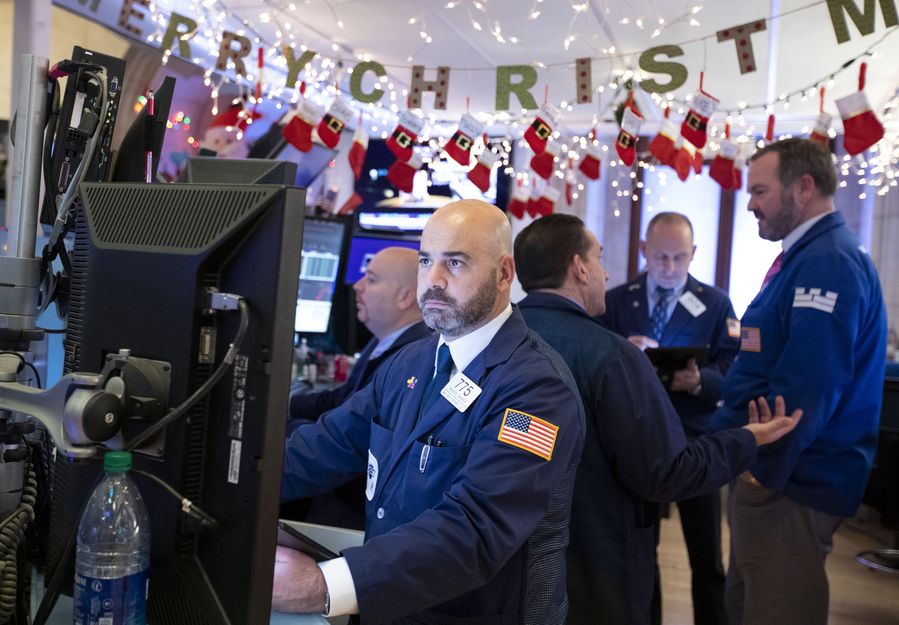
Traders work at the New York Stock Exchange in New York, the United States, on Dec. 13, 2019. U.S. stocks ended higher on Friday as investors digested updates about U.S.-China trade and a slew of economic data. (Xinhua/Wang Ying)
"That gives us some comfort that what's been announced is fairly substantial. The phase-one deal is fairly credible in terms of this is a clear path towards de-escalation," said Draho.
NEW YORK, Dec. 15 (Xinhua) -- The phase-one economic and trade deal between United States and China will be beneficial to business sentiment and economic growth in multiple countries around the world, an expert with Swiss financial institution UBS said on Friday.
It's truly positive that China and the United States have agreed on the text of a phase-one economic and trade agreement, Jason Draho, head of Americas asset allocation at UBS Global Wealth Management, told Xinhua in an interview.
Draho said another positive thing is that the substantial phase-one deal covers intellectual property, market access, currency, and financial services, going beyond just purely rolling back tariffs or China buying more agricultural products.
"That gives us some comfort that what's been announced is fairly substantial. The phase-one deal is fairly credible in terms of this is a clear path towards de-escalation," said Draho.
"It seems (that) certain milestones were hit," Draho said, adding that he is still waiting for U.S. officials to speak and for concrete details on the plan to dial back tariffs.

A staff member tests the function of a model train at Broadway Limited Imports, an import firm in Ormond Beach of Florida, the United States, June 6, 2019. (Xinhua/Zou Guangping)
The most important impact of the phase-one trade deal will be the expected improvements in business sentiment, according to Draho.
Uncertainty arising from trade tensions has caused a lot of businesses to suspend making investment decisions since 2018.
If the deal is viewed as a clear path toward de-escalation, companies from the United States, China and other parts of Asia will resume investment in projects that have been on hold, said Draho.
"If that happens, I think the whole global outlook next year looks better than what most people were forecasting just a month or two ago," he said.
Recent improvements in manufacturing and trade in certain parts of the world could continue to 2020 and overall growth could see a moderate acceleration, according to Draho.
Those countries and regions hit hard by trade tensions could benefit the most from the latest progress, he noted.
The current valuation of U.S. equities already reflects the phase-one trade deal, and whether the U.S. equity market will go much higher depends on the performance of economic factors like business sentiment, investment, and corporate earnings, according to Draho. ■





